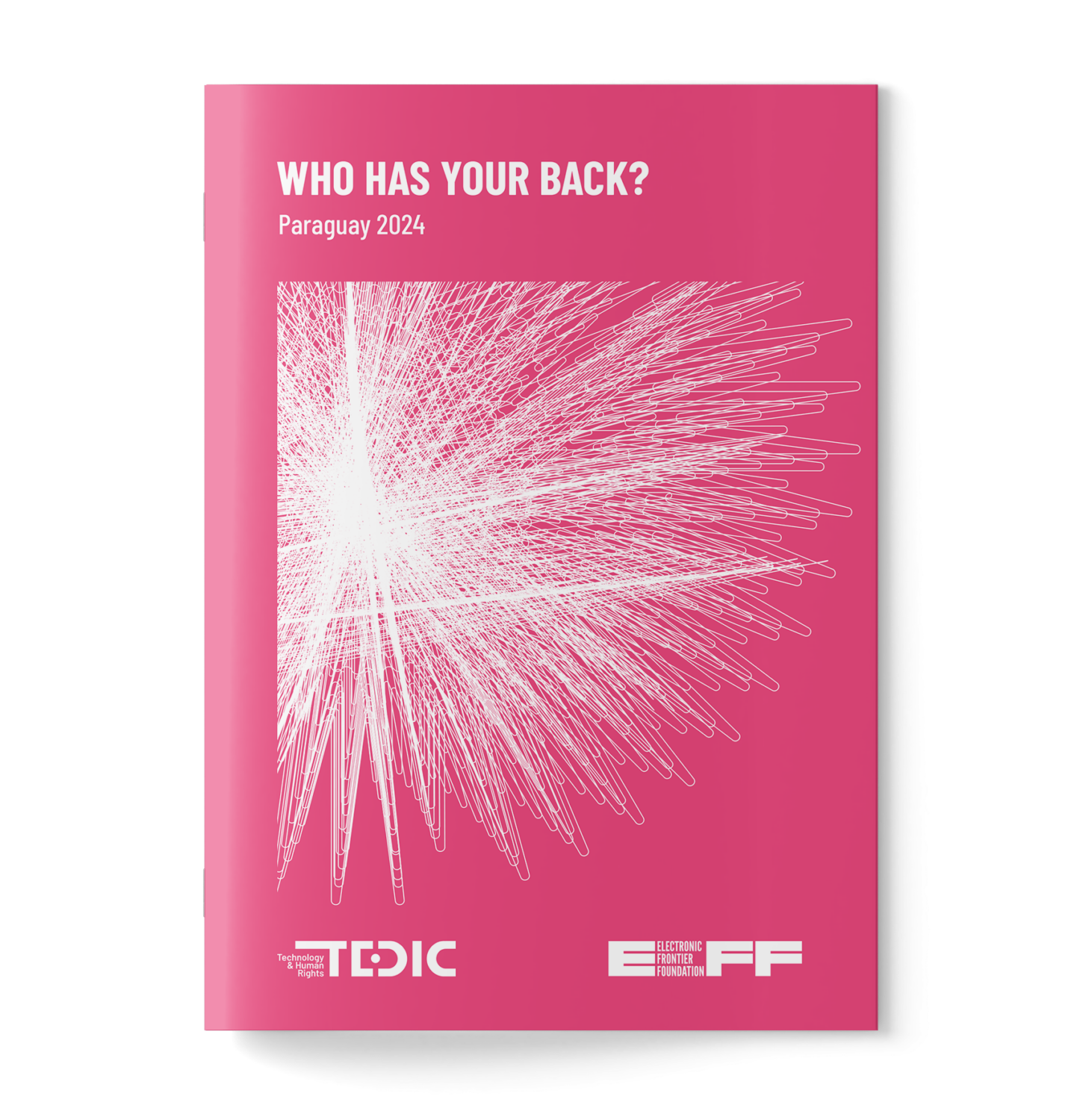
The “Who defends your data” project is inspired by the “Who has your back” initiative of the Electronic Frontier Foundation (EFF), although the methodology applied for this study differs from the one used in the United States, since the legal reality in Paraguay is notably different from that of the United States.
In its fourth edition, the project evaluated the same telephony and Internet service companies that had been evaluated in previous editions. Specifically, companies with a market greater than 15,000 customers nationwide were considered, including: COPACO, VOX, PERSONAL, TIGO and CLARO
The research in the framework of this project focuses on answering the following questions: How do Internet Service Providers (ISPs) protect our privacy? How do they safeguard our personal data? Are there clear procedures in place for this? Do they actively participate in the defense of our rights in public debate forums?
Various reports and resolutions from the United Nations have emphasized the importance of Internet access as an indispensable tool for the full exercise of human rights, while at the same time contributing to achieving greater levels of social benefits and inclusion. In this context, the recurrent evaluation of technology and telecommunications from a rights-based perspective becomes essential, as they are fundamental to our current form of interaction and communication, playing a crucial role in guaranteeing equitable access to information, social participation and global connectivity.
Since the previous edition, a small adjustment was made to allow the comparison of criteria at the regional level, a modification that remains in this research. A results table has been incorporated to compare the performance of companies in the different categories and evaluation criteria for the four editions of this research (2017, 2020, 2022 and 2024). These are based on their public commitment to compliance with the law, the adoption of good practices favorable to Internet service users, transparency in their practices and policies, accessibility in their web platforms, among other aspects.
Each company was evaluated on the basis of the 7 categories outlined and justified in the evaluation criteria section, which were developed considering the requirements of the regulatory framework in force in Paraguay and international best practices in terms of privacy protection and personal data processing. For this evaluation, the service agreements, sustainability reports and other documents that were available on the companies’ websites until January 2024 were analyzed. Press releases and specialized media on the subject were also evaluated.
Research: Antonia Bogado y Maricarmen Sequera
Collaboration and review: Veridiana Alimonti (EFF)


 [Research] Technology-facilitated gender-based violence against women politicians in Paraguay
[Research] Technology-facilitated gender-based violence against women politicians in Paraguay